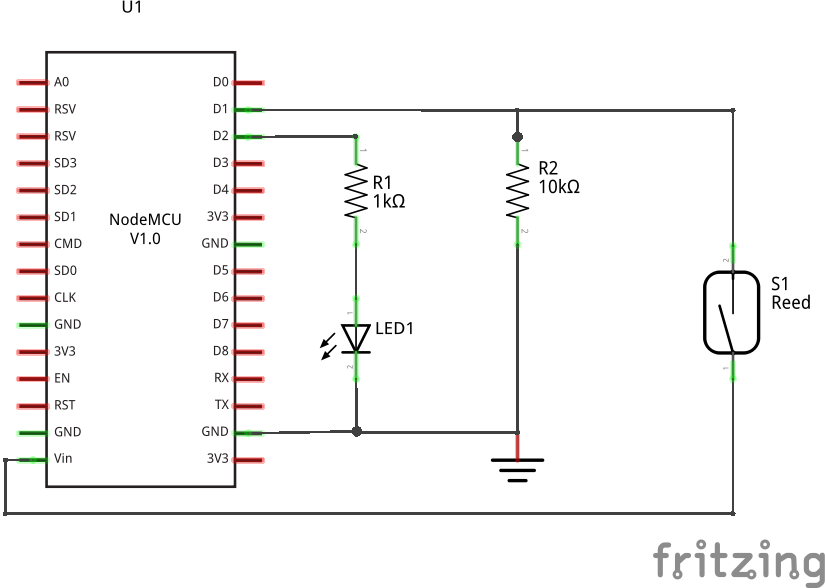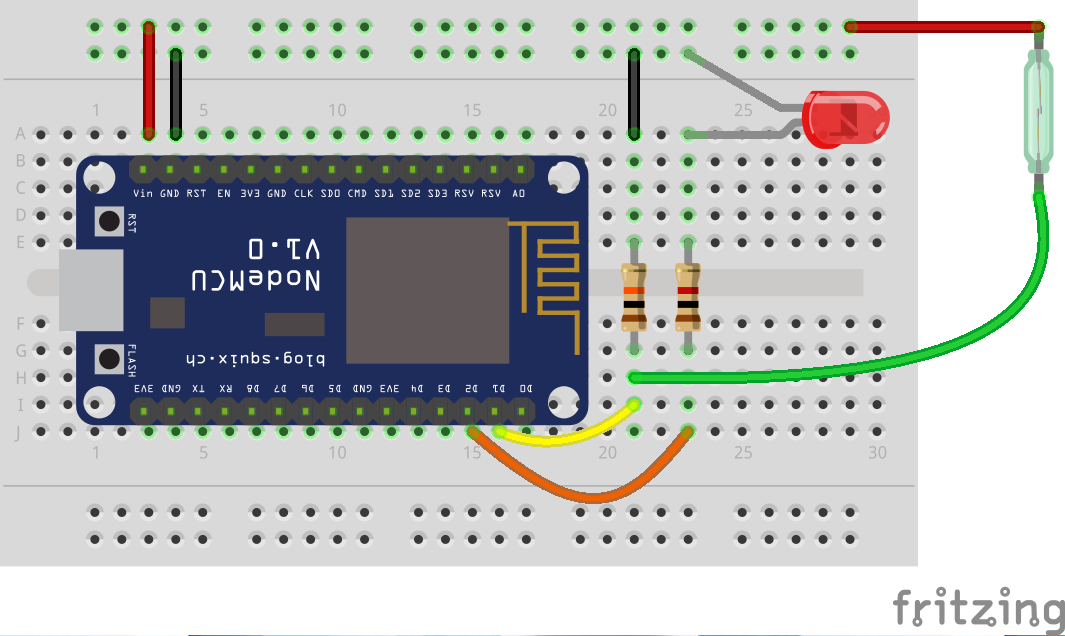This simple sketch detects magnetic pulse thanks to a reed switch, and sends it immediately to an MQTT broker.
It is used with a Kent V100 (PSM) water meter, which is heavily used in Belgium. It generates one pulse per 0.5 liter.
The hardware schematic is quite simple:
Digital input D1 is set to ground thanks to a pull down resistor R2. When the reed switch is closed, the input is raised to VCC and an interrupt is detected. The LED1 is flashing to provide a visual control when a pulse is detected.
MQTT is used in order to use Grafana & InfluxDB as database and visualization tool, allowing greater flexibility in the aggregation and custom made dashboards.
The following topics are defined (my_hostname is the ESP chipID (aka serial number) of the ESP8266):
- house/hardware/ping_all
-
Direction: get
-
answer: house/hardware/ping_all/result: hostname of the ESP.
-
Usage:
Specific topic that all hardware on the network must listen to and answer. It's a kind of discovery topic to have a view on active hardware.
- house/hardware/my_hostname/do_reboot
-
Direction: set
-
answer: none
-
payload: none
-
Usage:
Restart the ESP. It does not work after the first restart after serial flashing. However it works after manual reboot by power of RST switch.
- house/hardware/my_hostname/do_upgrade
-
direction: set
-
answer: none
-
payload: the URL to download the firmware.
-
Usage:
Launch firmware upgrade via HTTP download. The payload is the HTTP URL to download the firmware. ! A priori, only HTTP works (no HTTPS)!
- house/hardware/my_hostname/enable_mqtt_logs
- direction: set
- answer: none
- payload: 0 --> disable log. Any other char --> enable logs
- usage: Enable of disable MQTT verbose logs. Those are sent on house/hardware/my_hostname/log
- house/hardware/my_hostname/get_config
- direction: get
- answer: Send on the log topic the following info: sensor topic, file compilation date and time, Wifi ssid
- payload: none
- usage: return some configuration and state information's
- house/hardware/my_hostname/ctrl_led
- direction: set
- answer: none
- payload: 0 -->Turn LED off. Any other char --> turn the LED on.
- usage: Test MQTT messaging by controlling builtin LED.
The device is reporting pulses (aka. water volume consumption in liter) on the topic /house/sensors/water/city. This value is configurable in the private.h file.
In order to compile this sketch, you need a specific version of the PubSubClient: please download it on GitHub: https://github.com/xluthi/pubsubclient.
Before compiling, create a private.h file based on the provided private_example.h file: it should contain your Wifi settings, as well as the MQTT broker parameters.
The code contains a lot of debug statements. If those are not required, comment the #define DEBUG at the beginning of the main file.

